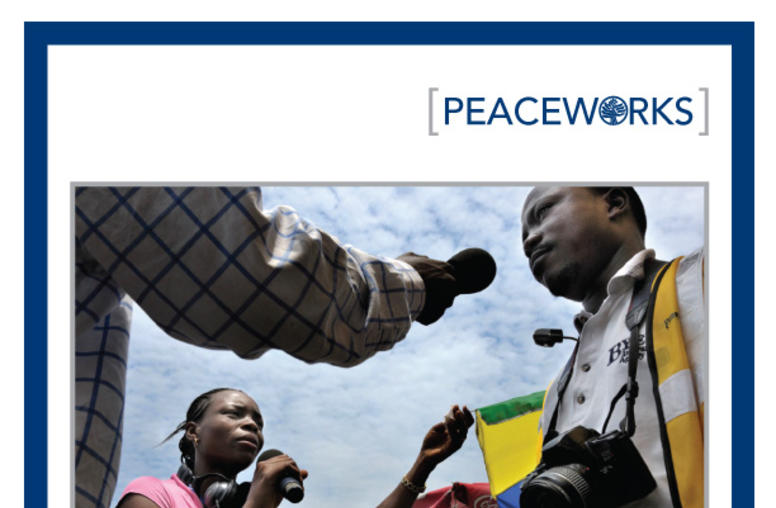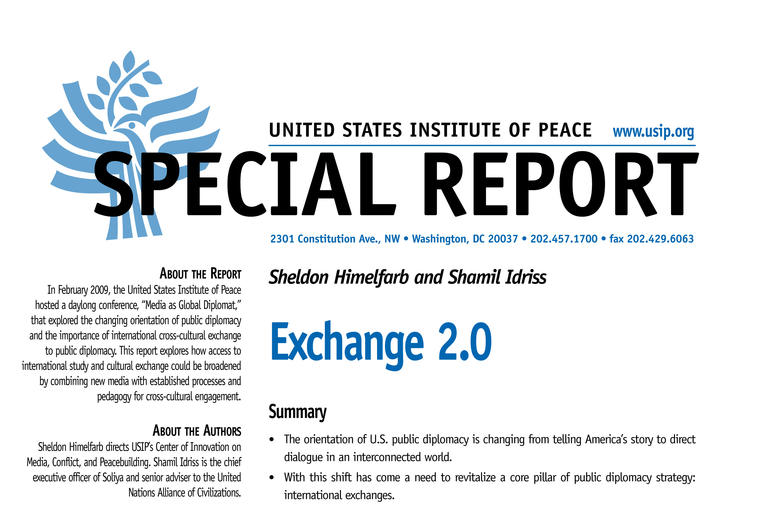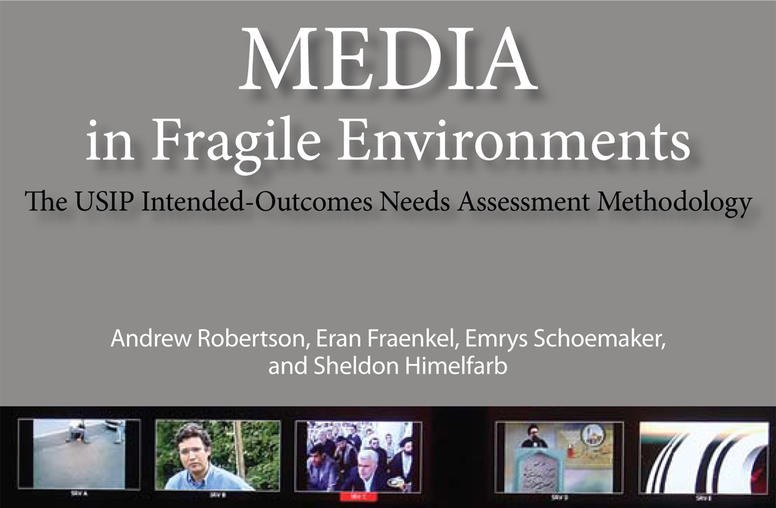Question And Answer
Publications
Articles, publications, books, tools and multimedia features from the U.S. Institute of Peace provide the latest news, analysis, research findings, practitioner guides and reports, all related to the conflict zones and issues that are at the center of the Institute’s work to prevent and reduce violent conflict.

Evaluating Media Interventions in Conflict Countries
Experts lay out a set of common principles for assessing how media programs in conflict zones help or hinder peacebuilding.
USIP Conference Assesses Social Media’s Role in Conflict
The new role of social media in popular revolutions and other political change is not the inevitable force for good some commentators portray it as, but its complicated effects are promoting a wider transfer of geopolitical power from traditional nation-states to individuals and institutions, according to speakers at a conference held at the United States Institute of Peace (USIP) on September 16.
Panel at USIP Calls for Assessing Media Actions in Conflicts
Although media has become a core part of the international community’s efforts to manage conflict and promote peacebuilding, the ability to evaluate media interventions in conflict lags behind. There is an urgent need to ramp up the monitoring and evaluation of those efforts, a group of specialists said at the United States Institute of Peace (USIP) on September 9.
Democratization and Conflict in the Arab World: Challenges, Opportunities and Dangers
The mass protests seeking democracy and rule of law in the Arab world—amid the hope for change—have also produced an array of uncertainties, the likelihood of setbacks and the need for difficult policy choices by U.S. officials, the specialists addressing a United States Institute of Peace (USIP) conference on May 4 said. The event was co-hosted with Georgetown University.

Exchange 2.0
In February 2009, the United States Institute of Peace hosted a daylong conference, “Media as Global Diplomat,” that explored the changing orientation of public diplomacy and the importance of international cross-cultural exchange to public diplomacy. This report explores how access to international study and cultural exchange could be broadened by combining new media with established processes and pedagogy for cross-cultural engagement.
Exchange 2.0
The U.S. State Department retains an “unwavering commitment” to promoting international exchanges “through every possible venue—face-to-face and using connective technologies,” Judith A. McHale, the undersecretary of state for public diplomacy and public affairs, told an April 27 conference on the future of exchanges at the United States Institute of Peace in Washington.

Media in Fragile Environments
The methodology defined in this work helps a media assessment team understand the causes of conflict in a society, identify changes that could reduce that conflict, and create media interventions that help realize those changes.
Social Media in the Middle East
USIP's Sheldon Himelfarb talks about the role of social media in the recent uprisings in the Middle East.
Internet Freedom and Social Media
Following the massive protests in Egypt, Tunisia and elsewhere in the Middle East, Secretary of State Hillary Rodham Clinton spoke about the importance of Internet freedom and social media. USIP’s Sheldon Himelfarb examines how – and how much – the Internet can impact politics and be a force for freedom.
Egyptian President Resigns after Peaceful Protests
Egyptian President Hosni Mubarak has resigned on Feb. 11 after weeks of peaceful protests. USIP takes a comprehensive look at the situation and its implications.